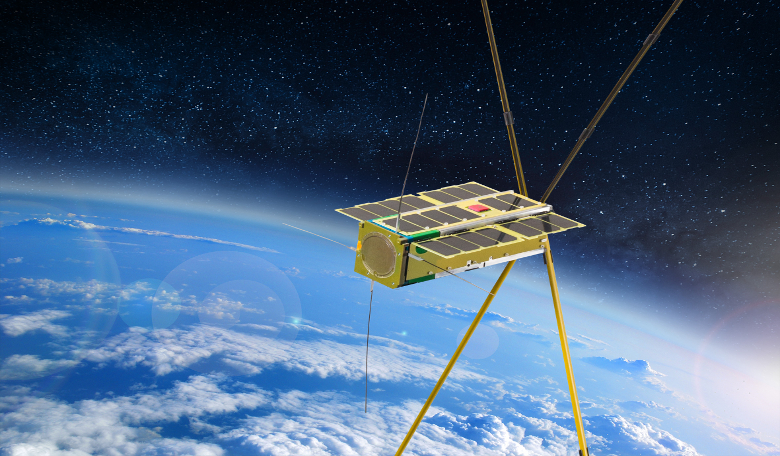After successfully passing gruelling tests that simulate the harsh environment of space, a state-of-the-art miniature satellite that will play an important role in developing Australian Defence space capability gets ready for launch.
The miniature satellite, often referred to as a CubeSat as they take the form of a 10 centimetre cube, was developed by a team of space engineers from UNSW Canberra and Defence Science and Technology Group, with the help of spacecraft test engineers from the Australian National University at the Advanced Instrumentation Technology Centre on Mt Stromlo.
“The cubesat that we tested is the first of two in a joint program called Buccaneer to build Australian capability to develop and fly satellite missions,” says Professor Russell Boyce, Director of UNSW Canberra Space.
Along with contributing to UNSW Canberra Space’s research program by looking at ways to more accurately predict the orbits of space objects, Buccaneer will perform calibration experiments for Australia’s Jindalee Operational Radar Network (JORN) from Low Earth Orbit.
“Satellites and space debris move around erratically due to space weather and atmospheric drag, even at high altitudes. These movements are not well understood and so are very hard to predict, and are a major reason why collisions in space are a serious risk,” says Boyce. “Being able to avoid collisions in space is essential if we are to safeguard the space-based technologies upon which the world depends.”
UNSW Canberra is playing a key role in the transformation of space technology and helping Australia to become an important space-faring nation by investing $10 million to build a domestic space program.
“Part of our investment involves bringing world-class Australian space talent back from the international space sector and reversing the brain drain,” says UNSW Canberra Rector, Professor Michael Frater. “UNSW Canberra is playing a key role in the transformation of space technology and helping Australia to become an important space-faring nation in ways that make economic sense and meet national needs,” added Frater.
Buccaneer is one aspect that will help with this philosophy as it helps pave the way for Australia’s home grown talent to take advantage of this rapidly transforming technology.











